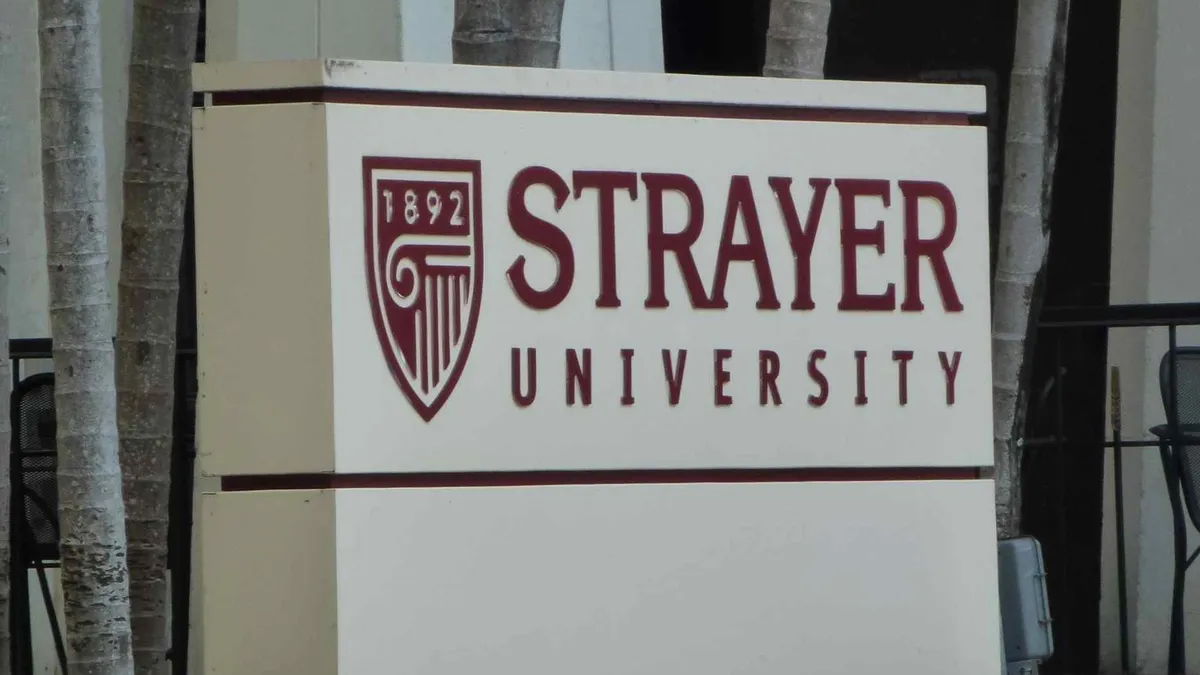Dive Brief:
- Strategic Education, the parent company of the for-profit Strayer and Capella universities, reported collective enrollment declines at those institutions in the second quarter of fiscal 2022 — marking around two years of falling student headcounts.
- Enrollment at the two universities decreased to 76,728 students, declining 8.6% from the same period last year. Revenue also decreased 8.6% year over year to $273.6 million. Profit dipped to $15.2 million, sliding 23.8% year over year.
- However, Strategic Education CEO Karl McDonnell said demand has been picking up for the company’s U.S. institutions, with inquiry volume up more than 20% compared to last year.
Dive Insight:
Strayer University — a predominantly online institution with dozens of campuses — has been struggling with enrollment for roughly two years. But in recent quarters, Strategic Education has been reporting Strayer and Capella enrollment together, making it difficult to disentangle the two institutions’ trajectories.
McDonnell has previously said that improving Strayer’s performance is the company’s highest priority.
The coronavirus pandemic battered the company’s enrollment, according to recent filings with the U.S. Securities and Exchange Commission. Strategic Education was forced to close campus locations and move face-to-face courses at Strayer to an online modality. Capella already was exclusively online.
McDonnell said changes at Strayer are helping improve trends at the company.
“The biggest catalyst is getting all of the campuses reopened, or predominantly all of the campuses,” McDonnell said. “That clearly had a major adverse impact when we had to close all of them for almost two years.”
Strayer isn’t the only for-profit institution that’s suffered from recent enrollment declines. Undergraduate enrollment slipped 2.5% at four-year for-profit colleges in spring 2022 compared to the year before. However, graduate enrollment at those institutions increased 5.4% over the same period.
McDonnell also touted recent gains in Strategic Education’s education technology services segment, where revenue increased 23.9% year over year to $16 million. The segment includes Sophia Learning, a subscription-based online course provider, and Workforce Edge, a corporate tuition benefits platform.
By the end of the second quarter, Workforce Edge had 45 corporate agreements, which collectively cover more than 1 million employees. That’s up from about 20 corporate partners at the same time last year, according to McDonnell.
Costs and expenses fell in line with revenue decreases, according to an unaudited financial statement. Total costs dipped to $251.7 million in the second quarter, down 7.6% from a year ago.















